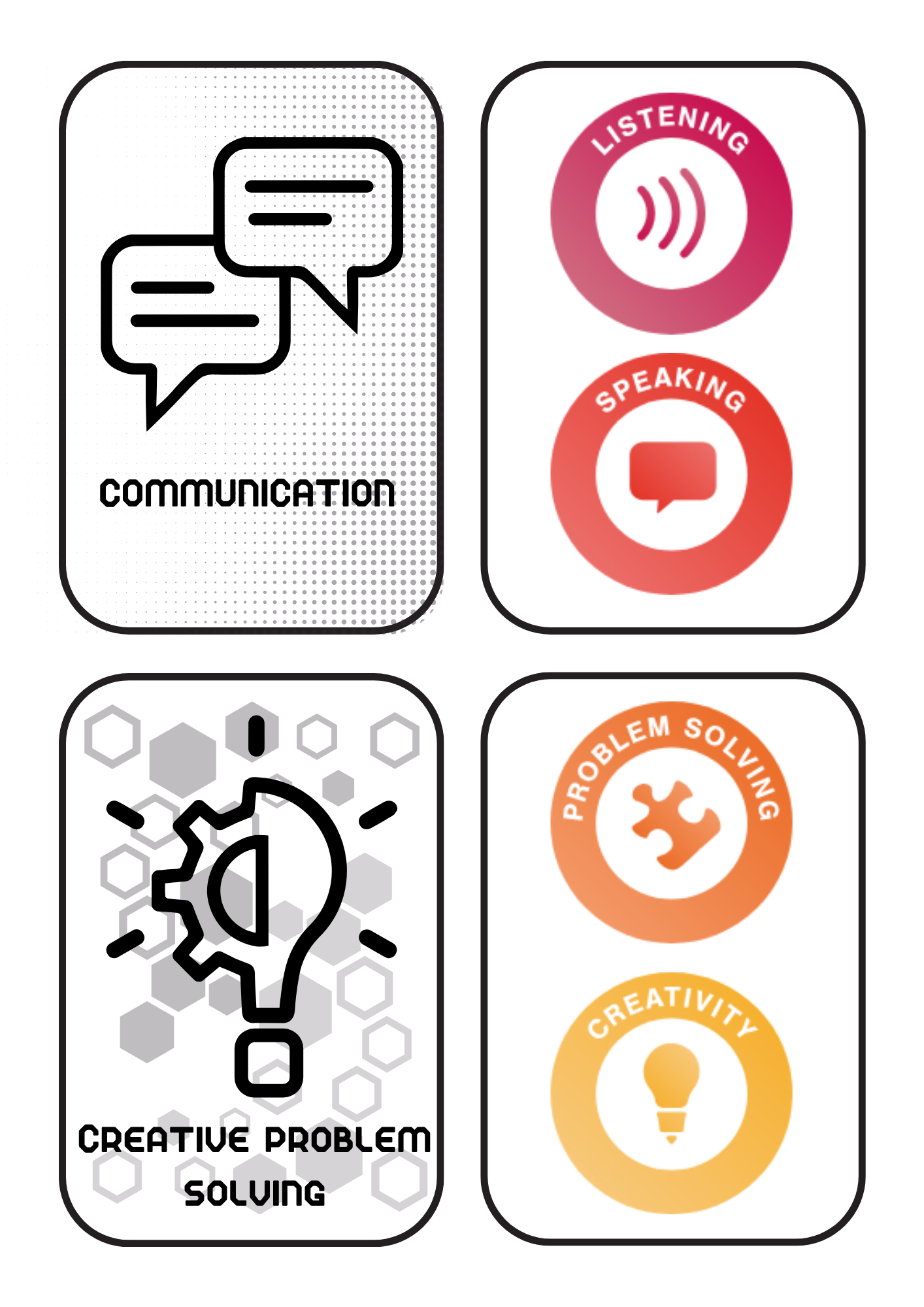Transferable Skills for your Future
Using the Universal Skills Builder Framework, explore the key skills that employers typically look for and why. Learn how students can analyse their own transferable skills and consider what future study or career choices these could help them develop. Challenge students to think of jobs related to each skill area with our Skills Finder Fast Play game. Hear from Stockport employees explaining how they use different skills as part of their job roles and see how many different careers you can discover.
This lesson plan can be used for students of all ages to learn more about the transferable skills they’ll need for the future. It’s an ideal tool to help young people understand what their skills are and how they can use their strengths, competencies and achievements to make realistic education and career choices for the years ahead.

Learning Objectives
As you start to think about your future career, it’s important to explore what you’re good at and how the skills you’ve developed could help you prepare for further study or work. Without even realising, you are developing and demonstrating new skills every day. From planning what books or equipment you’ll need for your school day, to managing a busy workload of homework, reports and assignments. Even getting yourself to school, college or an apprenticeship on time and interacting with your classmates or colleagues will equip you with the necessary skills for a successful future career.
In this lesson plan, students will:
- Find out what skills employers want (including the difference between ‘hard’ and ‘soft’ skills)
- Learn about transferable skills and how to identify them
- Explore different study options based on your strengths and competencies
Teacher Guide
You can use the PDF lesson plan to deliver a targeted session lasting 30-45 minutes or break it down into smaller chunks to be used during form time, within a careers lesson or embedded within the curriculum in specific subject area.
Our suggested delivery for this lesson would include:
- Introduction (5 mins): Start by introducing today’s topic and key learning objectives. You could ask students what skills they think they use in their everyday lives, at school or college or at home.
- Transferable Skills (10 mins): Encourage students to start thinking about what skills employers might see as important for particular sectors or job roles and why. Use the discussion points on slide 2 to test their current level of knowledge and raise a flipchart or use the whiteboard to record their answers. Talk through some of the ideas and responses given, using slide 3 as a prompt for any you may have missed.
- Universal Skills Builder Framework (15 mins): Explore the 8 key skill areas identified in the Universal Skills Builder Framework and how they can be ‘transferred’ or applied to lots of different jobs and careers. Split into 4 categories (communication, creative problem solving, self-management and collaboration) and talk through each – asking students to think about why this skill is important and give an example of how they have demonstrated this previously.
- What Employers Want (5 mins): Transferable skills and experience can take time to gain, develop and master. Use slides 10-11 to explain how employers list these required skills on job descriptions and advertisements to show what is required and how students may gain evidence of skills now to showcase in an interview for college, university, employment or an apprenticeship. Ask students to think about ways in which they can develop their skills further to improve their level of expertise or knowledge.
- Transferable Skills and Your Next Step Study Options (5 mins): Knowing what your skill set is, and where your strengths and weaknesses lie, can also help you choose the right type of post-16 route for you. Invite students to consider how their transferable skills might affect their choice of what, where or how to study after finishing secondary school or college.
- Summary (5 mins): Recap on what students have learnt about transferable skills and summarise the available next steps to prompt further research and conversations.
Follow-Up Activities
After the lesson (or if you have extended the lesson into multiple sessions), you could ask students to complete the following tasks:
- Research what skills, competencies, qualifications and achievements are needed for their future jobs or study options by reviewing courses on the UCAS website, exploring apprenticeship standards or visiting job boards to view local vacancies.
- Visit the Universal Skills Builder website to complete an online assessment of their skill level and build a plan for how to develop required skills for the future.
- Use our Career Guides to explore what transferable skills are needed for different sectors and how these should be evidenced on your CV.
Games, Activities & Worksheets
The following printable materials can be used during lessons or sent home with students as follow-up activities:
Individual Activity – My Personal Skills Tree
Not sure what you’re good at or where it could lead you? Use our free worksheet to plot out your transferable skills and discover job roles or career pathways linked to your skill-set.

Group Activity – Skills Finder Fast Play
Use our essential skills Flashcards to explore the top-rated transferable skills and see how many jobs you can name that relate to that skill area. It’s a quick fire game so slow responses, duplicates or hesitations will be eliminated. How many new job roles can you list that relate to each skill?

Bitesize Videos
View our range of 2-3 minute bitesize videos to include in your lesson or send the link to students to watch independently. Hear from local employers in Stockport talking about what skills are important for the future or their first ever job and where this took them.

Daily Reel (15 min video)
If you need to deliver a shorter session to students, try our Daily Reel video on this topic. It encourages students to think about their transferable skills and how you develop them during your academic career and personal lives. It introduces the Universal Skills Builder Framework to explore core skill areas and give practical examples of how students may use these currently or draw on them in different professions in the future.
In this 15 min summary, you’ll learn:
- What transferable skills are and why they are important
- What skills employers are looking for
- The difference between hard and soft skills
- How analysing your skill set can help you to make decisions
Useful Resources on Jobs & Sectors in Stockport
We’ve produced a range of tools to help teachers, careers advisors and students understand the latest trends and growth areas here in Stockport. Use these articles and resources to prepare for your lesson or to signpost students to help them expand their knowledge and make informed decisions about upcoming job choices, available training pathways and future career options.
Preparing for the Future with the Universal Skills Builder Framework
Whilst good grades are important, school or college teaches you a lot more than just subject knowledge and passing exams. The Universal Skills Builder Framework underpins a lot of the curriculum-based and careers-led learning that takes place in secondary schools and further education. It’s a collection of eight key skills that employers highly value that are important for your future career. Hear from local employers about how these skills are used in their everyday job roles.
Relating your Transferable Skills from the classroom to the workplace
Not sure what skills you have? Even less confident about how they can be transferred from school or college to real life in a job? We explain more about how you’ll have gained skills during your academic career without realizing it and give examples of how you could relate these to future jobs. We also look at the specific skills you might develop from subjects like Maths or Languages and what jobs they could lead you to.
Transferable Skills for Life – Free Training Courses after School or College
Developing your skills and learning new things doesn’t stop when you leave full-time education. Training (on the job or outside of work) will likely continue throughout your entire career. It’s an important way to stay competitive in your career journey, but also a route to take on more interesting job roles, work your way up or even secure a promotion. But how much do you know about the free or partially funded courses available to you when you finish school or college?



